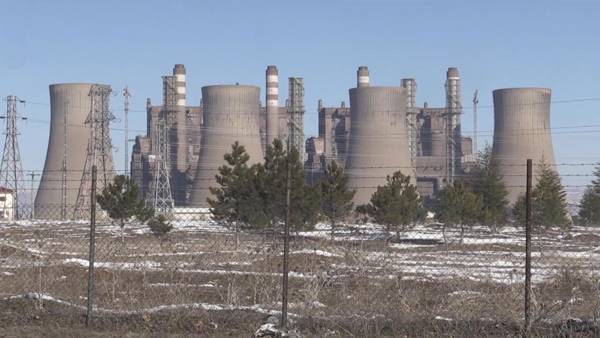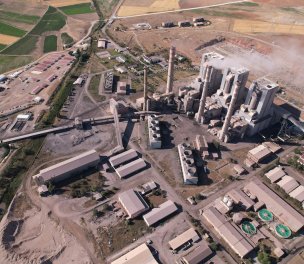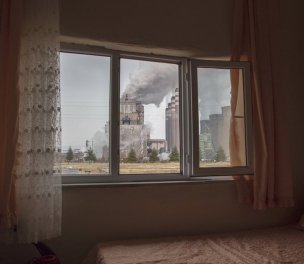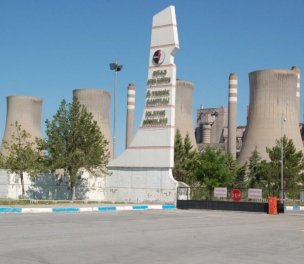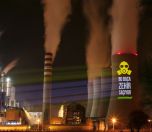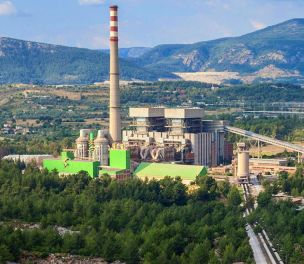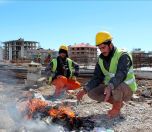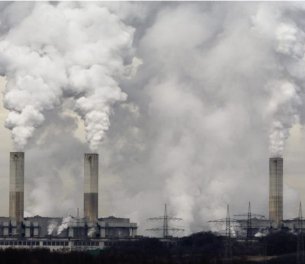Afşin A Thermal Power Plant (Photo: Right to Clean Air Platform)
Click to read the article in Turkish
Six coal-fired power plants that resumed operations after being suspended between January 1 and June 8 for violating the environmental legislation have continued emitting thick gas after reopening, the Right to Clean Air Platform has said in a written statement.
Details about the environmental investments made for the plants and emission values have not been revealed to the public, the platform noted, calling on the Ministry of Environment and Urbanism to release the information.
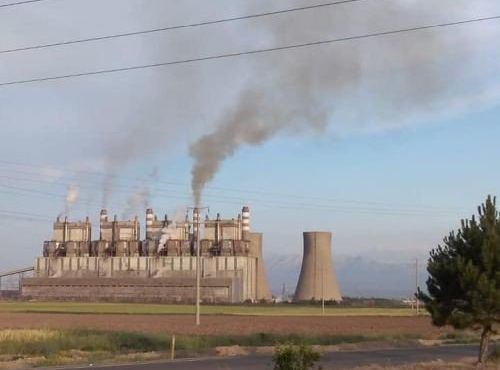
Attorney Deniz Bayram, a representative of the platform and program director of Greenpeace Mediterranean, said that they filed a declaratory lawsuit for the disclosure of the information regarding the plants in Zonguldak and Maraş provinces.
The plants reopened with temporary licenses although the investments were not completed, Bayram said, adding that people on social media have started sharing photographs of the thick some emitted from plants in Afşin (Maraş), Çatalağzı (Zonguldak), Seyitömer (Kütahya) and Soma (Manisa).
.jpg)
"It is said that a filter for the chimney gas but an ash filter has not been installed," said İbrahim Yalçın, a member of the Elbistan-Afrşin Platform for Protecting Life and Nature in Maraş.
"We have been breathing comfortably for six months, but now we're seeing the pitch-black smoke again," he added.
Dust emission might have increased
Orhan Aytaş from the Chamber of Mechanical Engineers said the plant has installed a dry cooling system, which was ineffective due to the high amount of sulphur in the smoke of Turkey's coals.
The electric filters used in plants in Turkey are suitable for operating this system and using it will increase dust emission, he added.
"It is stated that the mentioned system has been temporarily installed and a facility will be established in a year in these plants in accordance with the 'wet washing with limestone' technique, which is more efficient, but this is also unrealistic. The construction of such facilities requires about three years," Aytaş noted.
What happened?Minister of Environment and Urbanism Murat Kurum announced on January 1 that the thermal power plants of Maraş Afşin A, Kütahya Seyitömer, Kütahya Tunçbilek, Sivas Kangal and Zonguldak Çatalağzı were completely closed and Manisa Soma Thermal Plant was partially closed. Despite having no filters, 9 coal-fired power plants were granted "temporary operating certificates" that are valid until January 2021: Çanakkale / ÇAN 18 Mart Thermal Power Plant What does a filter do?According to the data shared by the Turkish Medical Association (TTB), if no filters are used, a 100-Megawatt thermal power plant burning coal leaves the following contaminating impacts on nature: Sulphur Oxides (SO2) - 45,000 ton/year Nitric Oxides (NOx) - 26,000 ton/year Carbon Monoxide (CO) - 750 ton/year Solid Particles (PM) - 32,500 ton/year Hydrocarbons - 250 ton/year Ash - 5,660 ton/year The Right to Clean Air PlatformThe Platform comprises 16 organizations and has been working on air pollution in Turkey since 2015. According to its website, the aim of the Platform is to advocate for the right to live in an environment with clean air and to protect the public health from the air pollution, especially resulting from the existing and the planned coal fired power plants in Turkey. https://www.temizhavahakki.com/english/ Platform Constituents are: CAN Europe, General Practitioner Association of Turkey, Greenpeace Mediterranean, Greenpeace Law Association, Green Thought Association, Health and Environment Alliance (HEAL), Physicians for Environment Association, TEMA Foundation (The Turkish Foundation for Combating Soil Erosion, for Reforestation and the Protection of Natural Habitats), Turkish Medical Association (TTB), Turkish Neurological Society, Turkish Respiratory Society, Turkish Society of Occupational Health Specialists (İMUD), Turkish Society of Public Health Specialists (HASUDER), Yuva Association, WWF Turkey, 350.org. |
(TP/VK)





